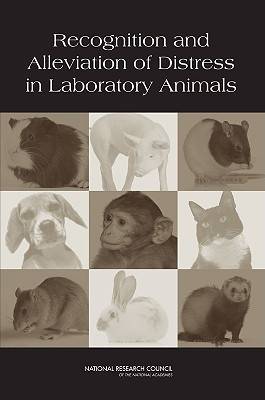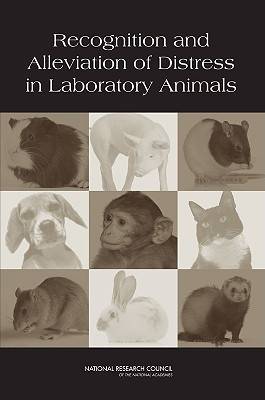
- Retrait gratuit dans votre magasin Club
- 7.000.000 titres dans notre catalogue
- Payer en toute sécurité
- Toujours un magasin près de chez vous
- Retrait gratuit dans votre magasin Club
- 7.000.0000 titres dans notre catalogue
- Payer en toute sécurité
- Toujours un magasin près de chez vous
Recognition and Alleviation of Distress in Laboratory Animals
National Research Council, Division on Earth and Life Studies, Institute for Laboratory Animal Research, Committee on Recognition and Alleviation of Distress in LaboratoDescription
Scientific advances in our understanding of animal physiology and behavior often require theories to be revised and standards of practice to be updated to improve laboratory animal welfare. This new book from the Institute for Laboratory Animal Research (ILAR) at the National Research Council, Recognition and Alleviation of Distress in Laboratory Animals, focuses on the stress and distress which is experienced by animals when used in laboratory research. This book aims to educate laboratory animal veterinarians; students, researchers, and investigators; animal care staff, as well as animal welfare officers on the current scientific and ethical issues associated with stress and distress in laboratory animals. It evaluates pertinent scientific literature to generate practical and pragmatic guidelines. Recognition and Alleviation of Distress in Laboratory Animals focuses specifically on the scientific understanding of the causes and the functions of stress and distress, the transformation of stress to distress, and the identification of principles for the recognition and alleviation of distress. This book discusses the role of humane endpoints in situations of distress and principles for the minimization of distress in laboratory animals. It also identifies areas in which further scientific investigation is needed to improve laboratory animal welfare in order to adhere to scientific and ethical principles that promote humane care and practice.
Spécifications
Parties prenantes
- Auteur(s) :
- Editeur:
Contenu
- Nombre de pages :
- 136
- Langue:
- Anglais
Caractéristiques
- EAN:
- 9780309108171
- Date de parution :
- 10-04-08
- Format:
- Livre broché
- Format numérique:
- Trade paperback (VS)
- Dimensions :
- 155 mm x 226 mm
- Poids :
- 231 g

Les avis
Nous publions uniquement les avis qui respectent les conditions requises. Consultez nos conditions pour les avis.






